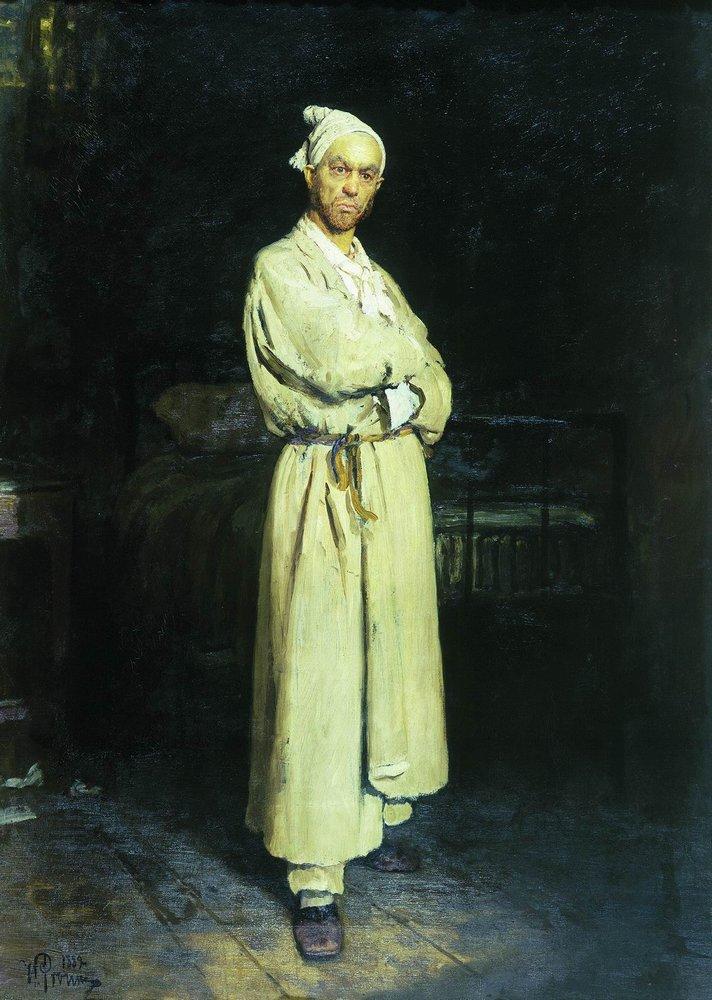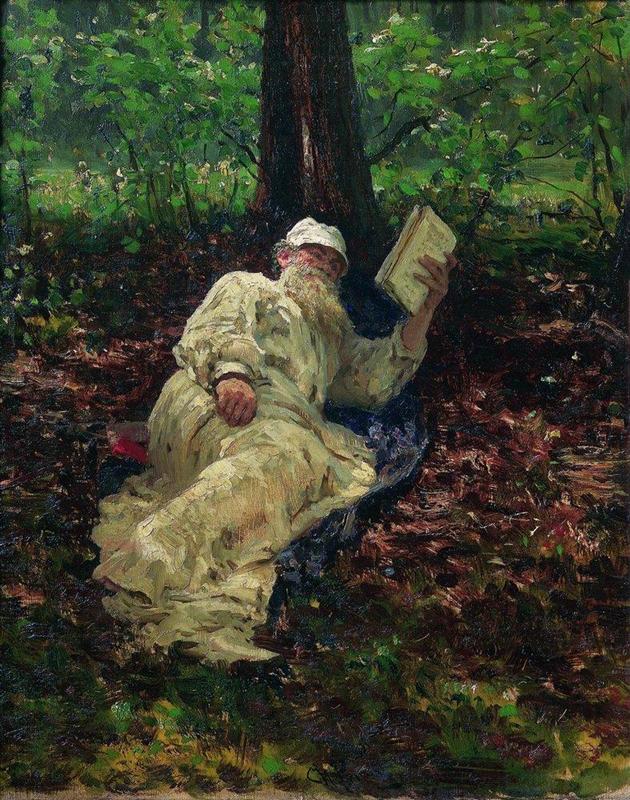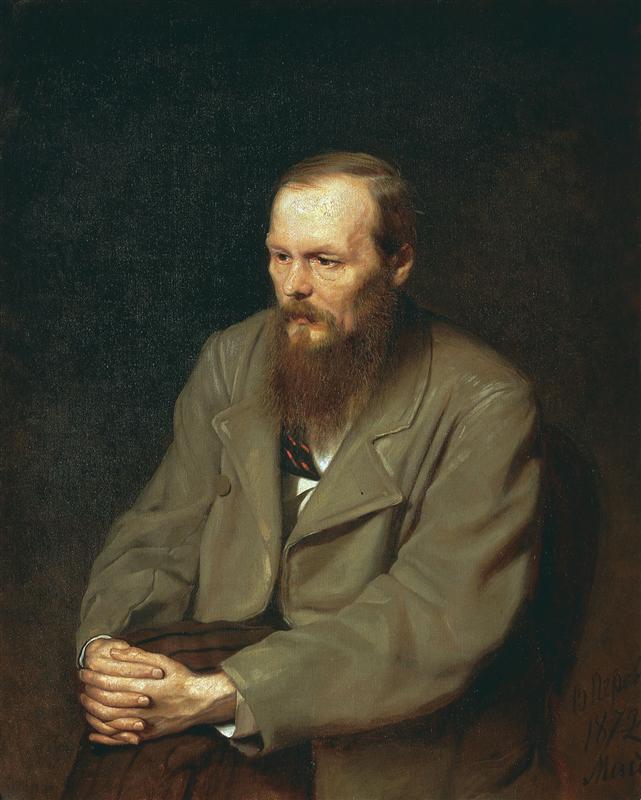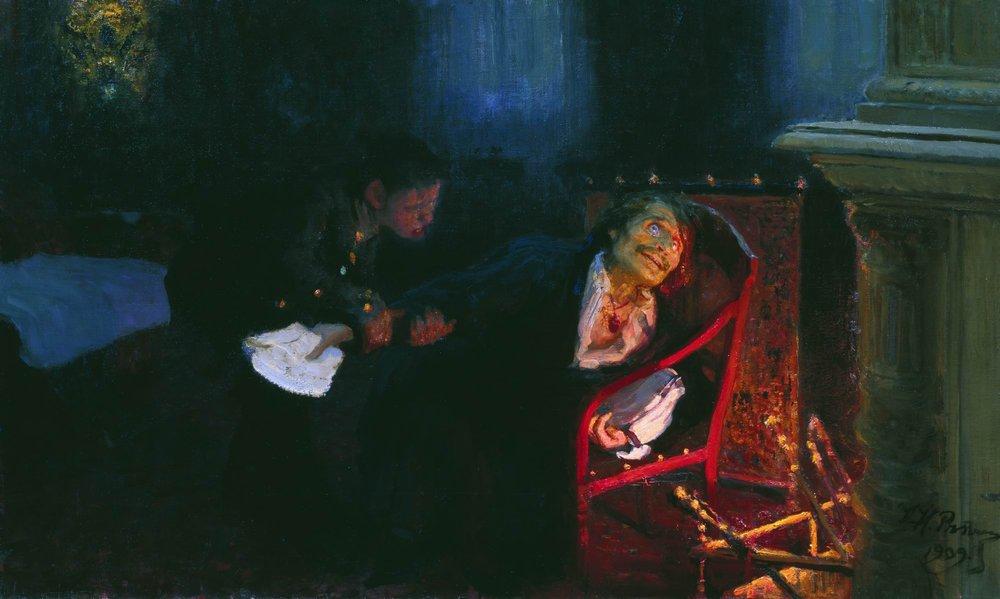CUCUMBER AND MUZA: AS THE SACRED DISEASES MISSED AND HELPED THE RUSSIAN WRITER CREATE
EVGENIYA BOYARSKAYA
When Joseph Brodsky was asked why poets, especially Russians, are so interested in the topic of madness, in response he compared mental illnesses to anarchy. They say, you can do everything to a psycho: it's silly to ask the insane, and what the Lord says through the holy fools, they stopped believing long ago. But this theory is not only cynical, but too trivial to explain the connection between genius and willingness to plunge into the abyss time after time.
Many poets, writers and scientists knew about their spiritual ills and treated them as a sacred disease. They used a powerful manic energy resource in order to create, they were waiting for the attack as manna from heaven, not to be able to talk about the forbidden with impunity. These geniuses monstrously drank a lot, smoked, pricked - all in order to make work an internal source of inspiration. In this way of life, treatment with a high probability would have turned into an end to the career and stigma of the creator who exchanged the divine gift for the despicable calm of a man deprived of talent.
The widow of Osip Mandelstam in her memoirs talks about the voices that whispered verses to her husband.
During the Cherdyn link, Mandelstam tried to throw himself out of the window, and it seems that this step brought him to himself - the voices disappeared, and the obsessive fear of death disappeared with them.
After leaving the window, Mandelstam began to joke about his illness. Attempted suicide, he called a "jump", and the disease - "seven-vertex commotion." But four years later the poet died in the camp, exhausted, desperate, eating scraps from the prison garbage - according to eyewitnesses, he was afraid that he would be poisoned.
The diagnosis of Mandelstam is schizophrenia. And although schizophrenia could then be attributed to anyone who thought outside the box, the voices in the poet's head speak volumes.
Schizophrenics always understand that something is wrong with them. They have a fascinating process in their heads: dopamine receptors have not yet been activated, but the neurons of the mesolimbic system, which is responsible for emotions, wrung out all the dopamine to themselves, leaving the hungry prefrontal cortex. Excessive activity of the "emotional" system causes positive symptoms of schizophrenia, that is, to the normal state, voices or delirium are added.
The reward system praises the brain for any thought, even the most useless - hence the obsessions and conversations with God.
Insufficiency of dopamine in the prefrontal cortex causes negative symptoms of the disease - right up to a complete stupor.
Schizophrenics try to avoid it, believing that they are dangerous for society because of a split personality, but the greatest harm is brought by the patients themselves because of the constant urge to commit suicide.




EVGENIYA BOYARSKAYA
When Joseph Brodsky was asked why poets, especially Russians, are so interested in the topic of madness, in response he compared mental illnesses to anarchy. They say, you can do everything to a psycho: it's silly to ask the insane, and what the Lord says through the holy fools, they stopped believing long ago. But this theory is not only cynical, but too trivial to explain the connection between genius and willingness to plunge into the abyss time after time.
Many poets, writers and scientists knew about their spiritual ills and treated them as a sacred disease. They used a powerful manic energy resource in order to create, they were waiting for the attack as manna from heaven, not to be able to talk about the forbidden with impunity. These geniuses monstrously drank a lot, smoked, pricked - all in order to make work an internal source of inspiration. In this way of life, treatment with a high probability would have turned into an end to the career and stigma of the creator who exchanged the divine gift for the despicable calm of a man deprived of talent.
The widow of Osip Mandelstam in her memoirs talks about the voices that whispered verses to her husband.
During the Cherdyn link, Mandelstam tried to throw himself out of the window, and it seems that this step brought him to himself - the voices disappeared, and the obsessive fear of death disappeared with them.
After leaving the window, Mandelstam began to joke about his illness. Attempted suicide, he called a "jump", and the disease - "seven-vertex commotion." But four years later the poet died in the camp, exhausted, desperate, eating scraps from the prison garbage - according to eyewitnesses, he was afraid that he would be poisoned.
The diagnosis of Mandelstam is schizophrenia. And although schizophrenia could then be attributed to anyone who thought outside the box, the voices in the poet's head speak volumes.
Schizophrenics always understand that something is wrong with them. They have a fascinating process in their heads: dopamine receptors have not yet been activated, but the neurons of the mesolimbic system, which is responsible for emotions, wrung out all the dopamine to themselves, leaving the hungry prefrontal cortex. Excessive activity of the "emotional" system causes positive symptoms of schizophrenia, that is, to the normal state, voices or delirium are added.
The reward system praises the brain for any thought, even the most useless - hence the obsessions and conversations with God.
Insufficiency of dopamine in the prefrontal cortex causes negative symptoms of the disease - right up to a complete stupor.
Schizophrenics try to avoid it, believing that they are dangerous for society because of a split personality, but the greatest harm is brought by the patients themselves because of the constant urge to commit suicide.
Vsevolod Garshin also suffered from schizophrenia, his illness had hereditary roots. He realized that the diagnosis does not relieve him of responsibility for his actions, repeatedly wrote about it to his friends and tried to heal. He described the course of his illness in the stories. Garshin's wife, Nadezhda Mikhailovna, was a doctor and knew what to do during the relapse. During the last attack she planned to take her husband to the Caucasus, but the day before he left, he rushed to the flight of stairs. The 33-year-old writer died of injuries several days later.
Leo Tolstoy, from the age of 30, suffered from depression, which was then exacerbated and then subsided. At the time of the attack, he felt anguish and horror; slept, ate and cried.
Depression is real, not the one that schoolgirls complain about today, so as not to learn lessons - is associated with a lack of neurotransmitters, especially serotonin. It is with this fight modern antidepressants. But Tolstoy, to whom no one could prescribe antidepressants, was saved by work. He studied languages, taught the alphabet of peasants. It turns out that Tolstoy was helped by the methods of traditional medicine, whose supporters now advise walking in the fresh air, rest and work in equal proportions.
Supporters of psychoanalysis believe that Dostoevsky suffered hysteroepilepsy, that is, epilepsy, whose attacks were provoked by emotional experiences.
In Dostoevsky's family there were drunken alcoholics, schizophrenics and suicides. Before epileptic seizure Fyodor Mikhailovich was delighted and happy, unknown to a normal person. This phenomenon is called "aura" - a specific predecessor of seizures. This symptom is manifested when the convulsive focus in the brain is already active, but not yet enough to drive neurons at the rate of seizure. During the attack, the writer did not recognize friends and talked with strange people, and afterwards complained of speech disorders. The explosive nature, the constant desire to pour out his bile, captiousness, melancholy and fear of death on the interlocutor are also consequences of the disease, which played a significant role in his work. However, Dostoevsky also very accurately described the mental states in which he had not been, which still puts researchers at a dead end.
Gogol's manic-depressive
Leo Tolstoy, from the age of 30, suffered from depression, which was then exacerbated and then subsided. At the time of the attack, he felt anguish and horror; slept, ate and cried.
Depression is real, not the one that schoolgirls complain about today, so as not to learn lessons - is associated with a lack of neurotransmitters, especially serotonin. It is with this fight modern antidepressants. But Tolstoy, to whom no one could prescribe antidepressants, was saved by work. He studied languages, taught the alphabet of peasants. It turns out that Tolstoy was helped by the methods of traditional medicine, whose supporters now advise walking in the fresh air, rest and work in equal proportions.
Supporters of psychoanalysis believe that Dostoevsky suffered hysteroepilepsy, that is, epilepsy, whose attacks were provoked by emotional experiences.
In Dostoevsky's family there were drunken alcoholics, schizophrenics and suicides. Before epileptic seizure Fyodor Mikhailovich was delighted and happy, unknown to a normal person. This phenomenon is called "aura" - a specific predecessor of seizures. This symptom is manifested when the convulsive focus in the brain is already active, but not yet enough to drive neurons at the rate of seizure. During the attack, the writer did not recognize friends and talked with strange people, and afterwards complained of speech disorders. The explosive nature, the constant desire to pour out his bile, captiousness, melancholy and fear of death on the interlocutor are also consequences of the disease, which played a significant role in his work. However, Dostoevsky also very accurately described the mental states in which he had not been, which still puts researchers at a dead end.
Gogol's manic-depressive
===================================================================
Когда Иосифа Бродского спросили, почему поэты, особенно русские, так интересуются темой сумасшествия, в ответ он сравнил психические болезни с анархией. Мол, психу все можно: глупо же спрашивать с умалишенного, а в то, что через юродивых говорит Господь, перестали верить уже давно. Но эта теория не только цинична, но и слишком тривиальна, чтобы объяснить связь между гениальностью и готовностью раз за разом погружаться в бездну.

Многие поэты, писатели и научные деятели знали о своих душевных недугах и относились к ним как к священной болезни. Они использовали мощный маниакальный энергетический ресурс для того, чтобы творить, они ждали приступа как манны небесной отнюдь не для того, чтобы иметь возможность безнаказанно говорить о запретном. Эти гении чудовищно много пили, курили, кололись — все ради того, чтобы заставить работать внутренний источник вдохновения. При таком образе жизни лечение с большой вероятностью обернулось бы концом карьеры и стигмой творца, променявшего божественный дар на презренное спокойствие обделенного талантом обывателя.
Вдова Осипа Мандельштама в своих мемуарах рассказывает о голосах, которые нашептывали стихи ее мужу.
Во время чердынской ссылки Мандельштам пытался выброситься из окна, и похоже, что именно этот шаг привел его в себя — голоса исчезли, с ними исчез и навязчивый страх смерти.
После выхода в окно Мандельштам стал шутить над своей болезнью. Попытку самоубийства он называл «прыжком», а болезнь — «семивершковой кутерьмой». Но уже через четыре года поэт умер в лагере, истощенный, в отчаянии, питаясь объедками с тюремной помойки — по свидетельствам очевидцев, боялся, что его отравят.
Диагноз Мандельштама — шизофрения. И хотя шизофрению тогда могли приписать любому, кто мыслил нестандартно, голоса в голове поэта говорят о многом.
Шизофреники всегда сами понимают, что с ними что-то не так. У них в голове идет завораживающий процесс: дофаминовые рецепторы еще не активизировались, но нейроны мезолимбической системы, которая отвечает за эмоции, отжали весь дофамин себе, оставив голодной префронтальную кору. Чрезмерная активность «эмоциональной» системы вызывает положительные симптомы шизофрении, то есть к нормальному состоянию добавляются голоса или бред.

Система вознаграждений хвалит мозг за любую мысль, даже самую бесполезную — отсюда и появляются навязчивые идеи и разговоры с Богом.
Недостаточность же дофамина в префронтальной коре вызывает отрицательные симптомы заболевания — вплоть до полного ступора.
Шизофреников стараются обходить стороной, считая, что они опасны для общества из-за раздвоения личности, но самый большой вред больные приносят сами себе из-за постоянных позывов к самоубийству.
Всеволод Гаршин тоже страдал шизофренией, его болезнь имела наследственные корни. Он осознавал, что диагноз не снимает с него ответственность за поступки, неоднократно писал об этом своим друзьям и пытался лечиться. Ход своей болезни он описывал в рассказах. Жена Гаршина, Надежда Михайловна, была медиком и знала, что делать во время рецидивов. Во время последнего приступа она планировала вывести мужа на Кавказ, но за день до отъезда он бросился в лестничный пролет. 33-летний писатель умер от травм несколько дней спустя.
Лев Толстой с 30 лет страдал от депрессии, которая то обострялась, то шла на убыль. В момент приступа он чувствовал тоску и ужас; спал, ел и плакал.
Депрессия — настоящая, а не та, на которую сегодня жалуются школьницы, чтобы не учить уроки — связана с недостатком нейромедиаторов, особенно серотонина. Именно с этим борются современные антидепрессанты. Но Толстой, которому никто не мог выписать антидепрессанты, спасался работой. Изучал языки, учил азбуке крестьян. Получается, что Толстому помогли методы народной медицины, сторонники которой и сейчас советуют прогулки на свежем воздухе, отдых и труд в равном соотношении.

Сторонники психоанализа полагают, что Достоевский страдал истероэпилепсией, то есть эпилепсией, приступы которой были спровоцированы эмоциональными переживаниями.
У Достоевского в роду были запойные алкоголики, шизофреники и самоубийцы. Перед эпилептическим припадком Федор Михайлович испытывал восторг и счастье, неведомые нормальному человеку. Такое явление называют «аурой» — специфическим предшественником приступов. Этот симптом проявляется, когда судорожный очаг в мозгу уже активен, но еще не настолько, чтобы гнать нейроны на скорости припадка. Во время приступа писатель не узнавал знакомых и общался со странными людьми, а после жаловался на нарушения речи. Взрывной характер, постоянное желание излить на собеседника свою желчь, придирчивость, тоска и страх смерти — тоже следствия болезни, сыгравшие значительную роль в его творчестве. Однако Достоевский также очень точно описывал психические состояния, в которых не бывал, что до сих пор ставит исследователей в тупик.
Гоголевский маниакально-депрессивный психоз знаменит не меньше писателя, хотя над его диагнозом до сих пор спорят. Болезнь Гоголя протекала приступами, которые усиливались с каждым витком.
Во время подъема у больных биполярным расстройством голова кишит идеями. Их настолько много, что остановиться и обдумать хоть одну мысль очень трудно. Потребность во сне стремится к нулю, повышается аппетит и желание общаться. Но период мании в три раза короче депрессивного, который делает болезнь почти невыносимой. В приступе мании может возникнуть бред величия, а в период депрессии — бред вины.

Если верить эволюционной теории болезни, то это генетическое заболевание по своей сути — усиленное проявление банальной адаптации. То есть такое горячечное поведение мозга в определенных дозах и в нужной ситуации выручало наших предков, а сниженная активность, свойственная для депрессивной фазы, помогала беречь энергию. Но в качестве объяснения теория нарушенного обмена нейромедиаторов звучит намного убедительнее.
Кто-то из современников говорил, что у Гоголя «воспаленный мозг», кто-то считал его умственно отсталым, но то, что с писателем что-то не в порядке, замечали все. Врачи стеснялись направить Николая Васильевича к психиатру. Стереотип о том, что обращение за психиатрической помощью постыдно, — огромная проблема и сейчас.
Психиатр Чезаре Ломброзо (известный не только скандальными взглядами на генетическую обусловленность преступлений, но и более адекватными трудами) подтвердил, что высокий уровень интеллекта повышает вероятность развития биполярного расстройства в 4 раза. Даже в XIX веке были способы облегчить состояние душевнобольных, но стоит ли душевный комфорт одного гения нескольких образцов великой литературы — дилемма похлеще, чем про слезинку ребенка.






